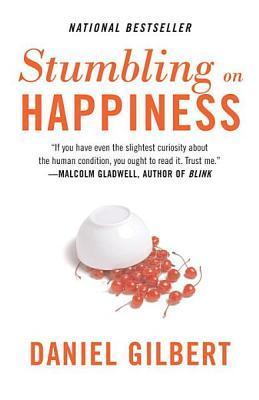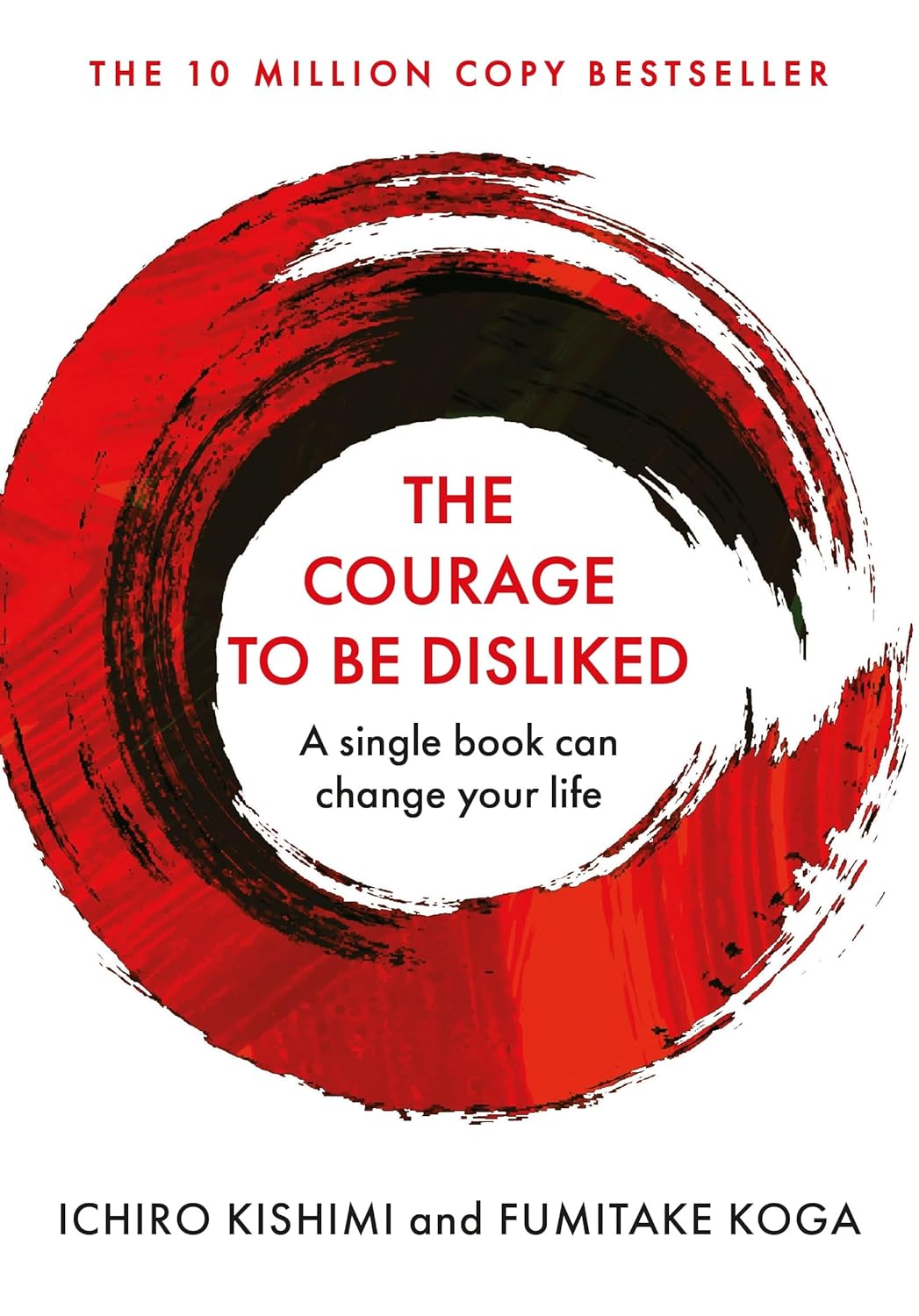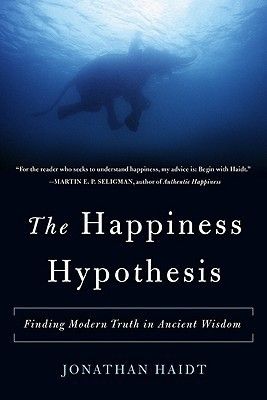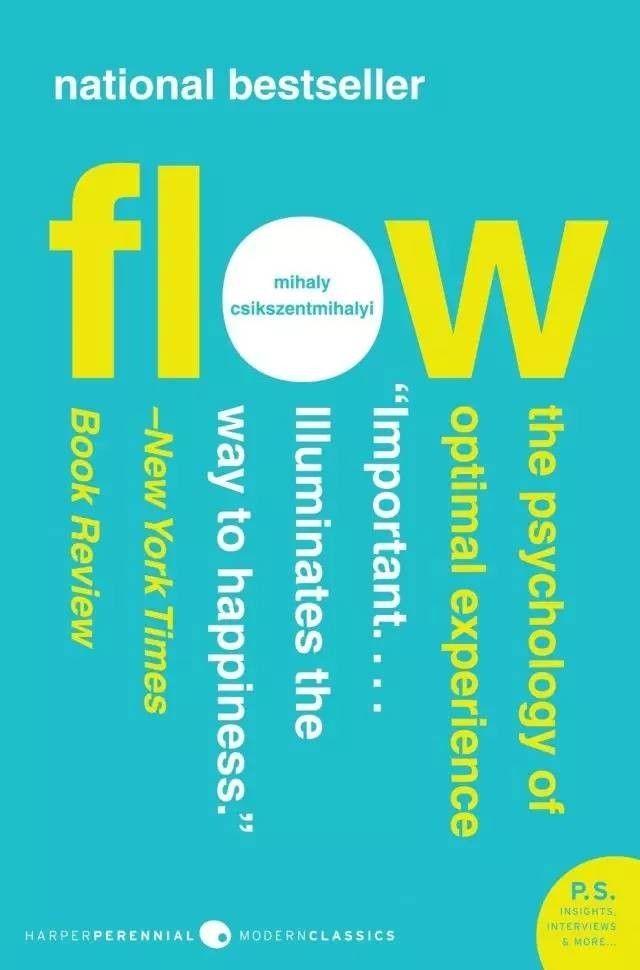In the 2000 U.S. presidential election, George W. Bush was declared the winner after an intense, drawn-out vote recount process. Supporters of his opponent, Al Gore, were devastated.
When surveyed in the days after the loss, Gore supporters predicted they would still feel very upset months later. They couldn't imagine feeling okay about such a crushing defeat.
But when surveyed a few months later, they had returned to their emotional baseline. Their psychological immune systems had kicked in, allowing them to rationalize the loss ("Gore won the popular vote anyway" or "Bush will be a lame duck president").
The Gore supporters couldn't predict this resilience in the immediate aftermath of the loss, when their mental image of the future was dominated by pain. They assumed their initial feelings would persist indefinitely.
Section: 5, Chapter: 9
While people universally seek happiness, the word "happiness" itself is very hard to define precisely. Happiness refers to a subjective feeling, a personal experience. We can't point to happiness as an objective thing in the external world. And your experience of happiness is impossible for anyone else to access directly. When we talk about happiness, we're referring to an internal state that we know when we feel it, but struggle to put into words.
Consider the real-life case of conjoined twins Lori and Reba Schappell. Most people assume conjoined twins must be very unhappy being physically attached to each other for life. But Lori and Reba report being quite happy and wouldn't want to be separated. Is their experience of happiness the same as what non-conjoined people feel? There's no way to directly compare subjective experiences between individuals. We can't get "inside" their minds to feel what their version of happiness is like compared to ours.
Section: 2, Chapter: 2
Keep in mind that you can never fully know what a subjective experience, like happiness, feels like for someone else. Even when people tell you they are happy, you are relying on their self-report, with no ability to verify their inner state.
When a friend reports being very happy or unhappy about something, resist the urge to assume you know exactly what that feeling is like for them. Instead, express empathy and compassion without claiming to fully understand their experience. Acknowledge that their happiness is unique to them.
Section: 2, Chapter: 3
"All men seek happiness. This is without exception. Whatever different means they employ, they all tend to this end. The cause of some going to war, and of others avoiding it, is the same desire in both, attended with different views. The will never takes the least step but to this object. This is the motive of every action of every man, even of those who hang themselves." - Blaise Pascal
Section: 1, Chapter: 1
Both when remembering the past and imagining the future, the human brain tends to "fill in" missing details that weren't originally stored, in order to construct a coherent scene or narrative.
- In memory, we don't store every detail of a past event. When we later retrieve that memory, the brain fills in plausible details to flesh it out, but these details may be inaccurate.
- When imagining a future event, the brain constructs a scene with many assumed details that may not match the actual details that will exist in that future moment.
In both cases, we aren't aware in the moment that our brain is "making up" details that feel real to us. We tend to trust that the details in our remembered and imagined scenes are accurate.
Section: 2, Chapter: 2
Many people despair of finding meaning and happiness because they believe it must come from outside themselves. They look at the chaos of the world and conclude life is inherently meaningless. But the philosopher argues this stems from the mistaken belief that meaning is something to be found "out there" rather than created from within.
We all have the capacity to imbue our own lives with meaning and purpose, regardless of our objective circumstances. Meaning arises from what we bring to situations, not from what they bring to us. Even experiences of loss and suffering can be made meaningful through the stand we take toward them.
Section: 5, Chapter: 55
Adlerian psychology rejects the Freudian notion of trauma. Trauma does not objectively exist as a causal factor in people's problems. Rather, people give meaning to past experiences in a way that suits their current purposes.
As the philosopher states: "Adler, in denial of the trauma argument, states the following: 'No experience is in itself a cause of our success or failure... We are not determined by our experiences, but the meaning we give them is self-determining.'"
People are not passively shaped by past experiences, but actively choose how to interpret and respond to them. T
Section: 1, Chapter: 3
Many people live their lives trying to satisfy the expectations of those around them - parents, bosses, spouses, friends, etc. They contort themselves to fit the roles others want them to play. But this is a recipe for misery.
No matter how much you twist yourself to fit an imagined ideal, you will never perfectly match the vision in another person's head. More importantly, doing so means abandoning your own path in life.
Section: 3, Chapter: 25
The philosopher argues that the desire for recognition from others leads to a lack of freedom and unhappiness. When one craves recognition, one ends up living according to others' expectations instead of one's own values.
The more one seeks recognition, the more one tries to stand out as special by conforming to what one thinks others want, and the more one loses sight of one's authentic self. It is a downward spiral into performative, approval-seeking behavior that leads away from self-actualization.
Section: 3, Chapter: 24
Many people view their lives as linear narratives, a straight line from past to future in which the past determines the present and the end goal determines the value of the journey. But the philosopher argues this is a false and unhelpful way to look at life.
He explains: "Life is not climbing a mountain in order to reach the top...Life is a series of moments called 'now.'" He contrasts the linear view as "kinetic" with the momentary view as "energeial."
A healthier approach is to embrace each moment as an end in itself, not a means to an end. Engage fully with what is in front of you instead of dwelling on what is behind or ahead of you.
Section: 5, Chapter: 52
Haidt presents the happiness formula, adapted from the work of Lyubomirsky, Sheldon and Schkade, as follows:
- H (Enduring level of happiness) =
- S (Set range, genetically determined, ~50%)
- C (Circumstances, e.g. income, attractiveness, disability, ~10%)
- V (Voluntary activities and effort, ~40%)
This formula summarizes the proportions of happiness attributable to genes, circumstances, and effort. It shows that while circumstances matter, intentional effort (V) can significantly raise one's happiness within their set range (S). Haidt elaborates on several effective voluntary activities, such as meditation, cognitive therapy, and Prozac.
Section: 1, Chapter: 5
To increase your enduring happiness, invest effort (the V in the happiness formula) in two key areas:
- Relationships - Put time and energy into forming and maintaining close social bonds. Express affection and gratitude. Seek reconciliation if ruptures occur. Close, stable relationships are the single biggest predictor of happiness across the lifespan.
- Flow - Structure your days around pursuing challenging activities that engage your skills and passions. Minimize passive pleasures in favor of active engagement, especially at work. Organize your environment to make flow (and relationships) easier.
Resist the cultural messages that happiness comes from achieving major goals like wealth, beauty or status - the fleeting boosts they provide are not worth sacrificing relationships and flow.
Section: 1, Chapter: 6
Haidt contrasts ancient philosophies of happiness with modern ones. He argues that thinkers like Aristotle, the Stoics, Buddha, and Confucius rightly saw virtue and character development, not just subjective pleasure, as the keys to a fulfilling life.
The ancients recommended practicing virtues like courage, moderation, justice and wisdom until they became ingrained habits. In contrast, modern philosophies tend to emphasize either raw subjective experience (hedonism) or abstract rules (deontology, utilitarianism). As a result, modern life is often unmoored from considerations of virtue and character, and people struggle to find moral clarity and meaning.
Section: 1, Chapter: 8
The main idea of this chapter is captured well in two quotes - one from Shakespeare that "There is nothing either good or bad, but thinking makes it so", and one from Buddha that "Our life is the creation of our mind." In other words, while we cannot always control what happens to us externally, to a large extent our experience of life depends on how we interpret and react to events mentally. This is a core tenet of Cognitive Behavioral Therapy.
Section: 1, Chapter: 2
"What can you do to have a good, happy, fulfilling, and meaningful life? What is the answer to the question of purpose within life? I believe the answer can be found only by understanding the kind of creature that we are, divided in the many ways we are divided. We were shaped by individual selection to be selfish creatures who struggle for resources, pleasure, and prestige, and we were shaped by group selection to be hive creatures who long to lose ourselves in something larger. We are social creatures who need love and attachments, and we are industrious creatures with needs for effectance, able to enter a state of vital engagement with our work. We are the rider and we are the elephant, and our mental health depends on the two working together, each drawing on the others' strengths."
Section: 1, Chapter: 8
Relationships, not individual achievement, are the key to lasting happiness and health. Neglecting close bonds in pursuit of self-oriented goals is destructive. Make a habit of considering your partner's, family's and friends' needs alongside your own.
Compromise where necessary to maintain relationship harmony, rather than insisting on maximizing your personal preferences. Express affection, gratitude and admiration liberally - these positives should outweigh negatives by at least 5:1 in good relationships. Make time for shared activities and rituals that bring you together. Strong, stable relationships are a necessary condition for long-term well-being.
Section: 1, Chapter: 6
Haidt, drawing on the work of Mihaly Csikszentmihalyi, discusses the importance of flow states - times of full engagement and absorption in challenging activities that draw on one's strengths.
Finding flow in one's work is a major contributor to happiness and meaning in life. Flow produces lasting satisfaction in a way that momentary pleasures do not. The other key factor is close relationships - having people to share joys and sorrows with provides an enduring boost to wellbeing. In summary, the conditions for happiness are finding flow (especially in work) and love (especially through relationships).
Section: 1, Chapter: 5
Haidt debunks several popular myths about happiness, such as:
- Achieving major life goals like wealth, beauty, or prestige will make you lastingly happier
- Getting what you want always makes you happier
- Happiness comes either only from within (internal) or only from without (external)
- Following your gut desires and feelings will make you happy
In fact, research shows that most external conditions have a surprisingly minor impact on long-term happiness levels. Many apparent goods are subject to hedonic adaptation, fading quickly. The clearest external predictors of happiness are strong relationships, meaningful work, and connection to something greater than oneself.
Section: 1, Chapter: 5
"Unless one learns to control what happens in consciousness, one is at the mercy of the environment. A person who never gets to be alone, who is not comfortable spending even an hour in solitary reflection, tends to become dependent on the presence of others and feels at a loss when left alone with nothing specific to do. After a while, if one cannot tolerate even a few minutes without some external input, one becomes a slave to the stimuli of the environment. At that point, one is no longer in control of the mind—in fact, by identifying attention with what happens to be in the environment, one assumes the environment's random shape."
Section: 1, Chapter: 8
"The function of consciousness is to represent information about what is happening outside and inside the organism in such a way that it can be evaluated and acted upon by the body. In this sense, it functions as a clearinghouse for sensations, perceptions, feelings, and ideas, establishing priorities among all the diverse information. Without consciousness we would still "know" what is going on, but we would have to react to it in a reflexive, instinctive way. With consciousness, we can deliberately weigh what the senses tell us, and respond accordingly."
Section: 1, Chapter: 2
To achieve mastery over consciousness and enable flow experiences:
- Set clear goals
- Find ways to measure progress
- Keep concentrating on the task at hand
- Develop the skills to interact with available opportunities
- Keep raising the stakes if the activity becomes boring
Following this process turns even mundane tasks and routines into enjoyable flow activities. The key is learning to restructure what happens in consciousness moment by moment.
Section: 1, Chapter: 2
The mind and body are an integrated system. To achieve optimal human functioning, both need to work together and be trained as one.
- Engage in regular physical exercise, sports or dance. Bring full attention to the sensations and experience.
- Develop a healthy attitude toward sexuality. Learn to balance pleasure and intimacy.
- Practice mind-body disciplines like yoga, martial arts or Tai Chi. They cultivate physical grace with mental control.
- Appreciate music, art, food and natural beauty in a mindful, embodied way. Wake up to the richness pouring in through your senses.
- Use the body as a tool for mastering attention. Physical habits shape mental states. A healthy body enables a sound mind.
Section: 1, Chapter: 5
Aristotle concluded over 2,300 years ago that more than anything else, men and women seek happiness. While much has changed since then, this central yearning has not. What gives life meaning is not money or prestige, but how we feel and experience our lives from within. Despite having more material comforts and luxuries than ever before, people today are often no happier than in the past. The key to happiness lies not in external circumstances, but in how we manage our inner life and consciousness.
Section: 1, Chapter: 1
Optimal experiences have several common characteristics:
- They occur when we confront tasks we have a chance of completing
- We must be able to concentrate on what we are doing
- The activity has clear goals
- The activity provides immediate feedback
- One acts with deep, effortless involvement, without worries or frustrations
- There is a sense of control over one's actions
- Concern for the self disappears, yet the sense of self emerges stronger afterwards
- The sense of time is altered; hours pass by in minutes
This describes the phenomenology of enjoyment, the psychological conditions that make leisure and work activities conducive to flow.
Section: 1, Chapter: 3
Our inner experience is not inevitably determined by external events. We have the power to reshape how we experience and interpret our circumstances through controlling our consciousness.
- Don't rely on external achievements or acquisitions to make you happy. That is outside your direct control.
- Cultivate the ability to find enjoyment in any situation by managing your inner life. Learn to control your attention and the contents of your consciousness.
- Invest energy in experiences and relationships, not just material things. The quality of your experiences determines your quality of life.
Section: 1, Chapter: 1
Even mundane activities can be transformed into something enjoyable by following these steps:
- Set an overall goal, and as many subgoals as realistically feasible. Know what you want to accomplish.
- Find ways to measure your progress and get feedback. Track your achievements in a concrete way.
- Keep concentrating on the activity and make finer and finer distinctions in the challenges involved. Push yourself to higher levels of performance.
- Develop the skills necessary to interact with the available opportunities. Keep learning and growing to meet bigger challenges.
- Keep raising the stakes if the activity becomes boring. Up the difficulty when it gets too easy.
Finding flow in everyday life requires restructuring routines into meaningful, goal-directed, skill-building activities. It's all about your approach.
Section: 1, Chapter: 3
"What makes an activity conducive to flow is that it is an end in itself. Even if initially undertaken for other reasons, the activity that consumes us becomes intrinsically rewarding. Surgeons speak of their work: "It is so enjoyable that I would do it even if I didn't have to." Sailors say: "I am spending a lot of money and time on this boat, but it is worth it—nothing quite compares with the feeling I get when I am out sailing.""
Section: 1, Chapter: 3
Just as the body can be a source of flow experiences, so too the mind, arguably to an even greater degree. We often underestimate how enjoyable and rewarding thinking can be, if done for its own sake.
Great thinkers throughout history - Democritus, Aristotle, Archimedes, Newton, Einstein - have described their investigations as autotelic activities, pursued primarily for the sake of the experience itself. In fields as diverse as mathematics, poetry and philosophy, the act of grappling with conceptual problems is often described in ecstatic, almost mystical terms.
The same holds true for chess, logic games, artistic composition and scientific experimentation. Any mental activity that involves rules, goals and a perceived challenge can become a source of flow. What's required is learning the associated skills and then finding novel ways to use them.
Section: 1, Chapter: 6
Lifelong learning is perhaps the surest route to a life rich in flow experiences. By continually taking on new challenges that stretch skills, we can ensure that boredom never sets in. The key is choosing personally meaningful subjects and structuring the learning process as an enjoyable game.
Michel de Montaigne, the 16th century French Renaissance philosopher, exemplified this love of learning. At age 38, he abruptly left his political career to hole himself up in a tower stocked with books. He passed his remaining years reading, writing and contemplating life's great questions. His "Essays," which covered topics as diverse as horseback riding, cannibalism, and the nature of the self, became a testament to how the examined life can be its own reward.
Section: 1, Chapter: 6
Autotelic is a combination of auto (self) and telos (goal). An autotelic person is one who sets and pursues goals for intrinsic reasons, not external rewards or pressures.
Autotelic individuals tend to exhibit these qualities:
- Curiosity and interest in life
- Persistence and low self-centeredness
- Performing activities for their own sake, not external rewards
- Ability to enjoy the present moment without focusing on external pressures
- Intrinsic motivation to develop skills and take on new challenges
- Ability to translate threats into enjoyable challenges
- Frequent access to flow states
They also tend to pursue activities with clear rules and goals that allow for unambiguous feedback and total concentration.
Section: 1, Chapter: 4
The Marquis de Sade perfected the infliction of pain into a form of pleasure, illustrating that narcissistic individuals who are mainly concerned with protecting their self fall apart when external conditions turn threatening. Pleasure does not lead to happiness, only to the desire for more pleasure.
As Freud said, the two tyrants that fought for control over the mind were the id (servant of genetic desires) and the superego (lackey of society). In contrast, the ego stood for the genuine needs of the self. Eastern disciplines like yoga seek to free consciousness from these external pressures.
Section: 1, Chapter: 1
Books about Happiness
Happiness
Psychology
Stumbling on Happiness Book Summary
Daniel Gilbert
Harvard psychologist Daniel Gilbert takes readers on a whirlwind tour of the human brain, exploring how our unique ability to imagine the future often leads us astray in predicting what will make us happy. Gilbert argues that the futures we envision are often distorted by our current emotions, our flawed memories, and our psychological blind spots - but recognizing these limitations, we can learn to more accurately forecast our feelings and maximize our well-being.

Personal Development
Happiness
Psychology
The Courage to Be Disliked
Ichiro Kishimi and Fumitake Koga
Through an illuminating dialogue, "The Courage to Be Disliked" reveals how Adlerian psychology empowers us to overcome the past, embrace our authentic selves, and find genuine happiness by courageously living in the present and contributing to others.

Happiness
Psychology
Philosophy
Personal Development
Meaning
The Happiness Hypothesis Book Summary
Jonathan Haidt
The Happiness Hypothesis is a thought-provoking exploration of ancient wisdom and modern science that reveals the true sources of human flourishing - love, work, virtue, and the harmony between our divided selves and our social world.

Psychology
Happiness
Productivity
Personal Development
Flow Book Summary
Mihály Csíkszentmihályi
Flow reveals the secrets of optimal experience and shows how to transform even the most mundane moments into a source of enjoyment, creativity and meaning by learning to control consciousness itself.


